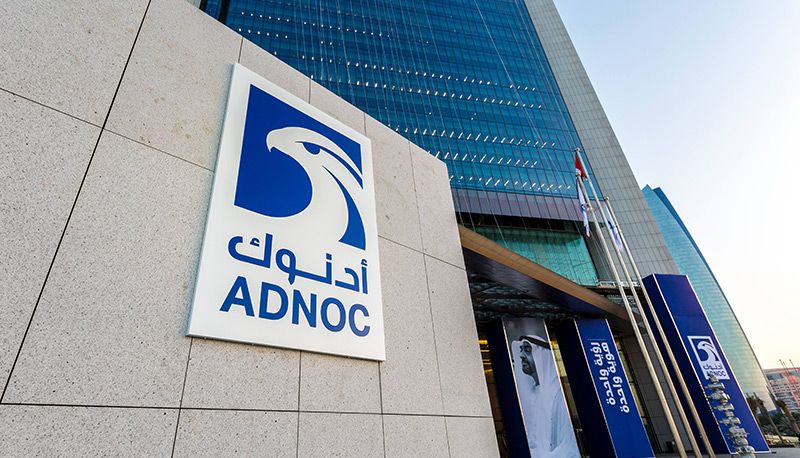ADNOC’s Ta’ziz Chemicals Hub Obtains US$2B+ in EPC Contracts
The contracts open the door for lower-carbon chemicals exports and the development of storage facilities, tank-to-jetty pipelines, inter-site pipelines, and liquid product storage.
The Ta’ziz chemicals hub obtained engineering, procurement, and construction (EPC) contracts for the development of site infrastructure. Valued at more than $2 billion, the contracts will advance the hub’s chemicals and transition fuels ecosystem in Al Ruwais Industrial City, Abu Dhabi. The infrastructure build-out will also enable ADNOC to develop a local low-carbon chemicals supply chain, including ammonia, and support its global growth strategy to become a leading chemicals company.
The contracts include the construction of:
- Storage facilities
- Tank-to-jetty pipelines
- Jetty-to-tank pipelines
- Inter-site pipelines
- Liquid product storage
The contract for chemicals terminal work was awarded to Rotary Engineering-Abu Dhabi, in partnership with Advario. NDMC Group will handle the chemicals port, and, upon completion, it will facilitate the export of chemicals and transition fuels, connecting regional and global markets and allowing access to imported supplies.
The essential infrastructure development contract was given to Al Geemi Contracting, building internal roads, security fencing, and buildings on the 17 sq. km Ta’ziz site. An additional contract will include the development of centralized utilities such as power transmission, steam, and cooling water.
ADNOC HQ in Abu Dhabi; image credit: Abu Dhabi National Oil Co.

“These infrastructure awards are milestones in TA’ZIZ’s mission to develop an integrated chemicals ecosystem to capitalize on growing global demand for low-carbon chemicals and transition fuels,” said Mashal Saoud Al-Kindi, CEO of TA’ZIZ. “We are well positioned to enable ADNOC’s chemicals growth strategy, while also driving the industrialization and diversification of the UAE’s economy through the creation of new local value chains.”
Ta’ziz Chemicals Hub
The hub will enter operation in 2027 with a targeted chemicals output of 4.7 mtpa by 2028. Ta’ziz will produce various chemicals including caustic, ethylene dichloride, vinyl chloride monomer, polyvinyl chloride, low-carbon ammonia, and methanol. Chemical production enables the regional manufacture of agriculture, construction, and healthcare products.
Ta’ziz’s chemicals port and terminal allows material imports and exports from the 1 mtpa low-carbon ammonia production facility and under-construction methanol plant. The infrastructure will offer:
- Connectivity
- Efficient product transportation
- Power for the site’s planned manufacturing and industrial zones
ADNOC News
In September 2024, ADNOC signed an agreement to acquire 35% equity stake in ExxonMobil Corp.’s planned low-carbon hydrogen and ammonia production facility in Baytown, TX, which requires supportive government policy and regulatory permits. The Baytown facility will utilize advanced CCS technologies to reduce carbon emissions produced during hydrogen production. A final investment decision is expected in 2025 with startup slated for 2029.
Upon startup, the facility could produce more than 1 million tons of low-carbon ammonia per year and up to 1 billion cubic feet per day of low-carbon hydrogen, with approximately 98% of CO2 removed. Project construction, through job creation and community development support, will economically benefit Baytown, the Houston area, and Texas.
And in July, bp agreed to acquire a 10% interest in ADNOC’s planned Ruwais LNG project in Al Ruwais Industrial City, Abu Dhabi, United Arab Emirates. Ruwais LNG is led by ADNOC with its 60% holding interest, alongside 10% holding interests from bp, Mitsui & Co., Shell, and TotalEnergies. In June 2024, ADNOC took the final investment decision in the project’s development.
The interest acquisition enhances bp’s and ADNOC’s partnership focused on energy, renewables, and carbon capture and storage technology, in addition to the duo’s collaboration at ADNOC’s onshore concession in Abu Dhabi. Once completed, the Ruwais LNG project will contain two 4.8 mtpa liquefaction trains for a total capacity of 9.6 mtpa.